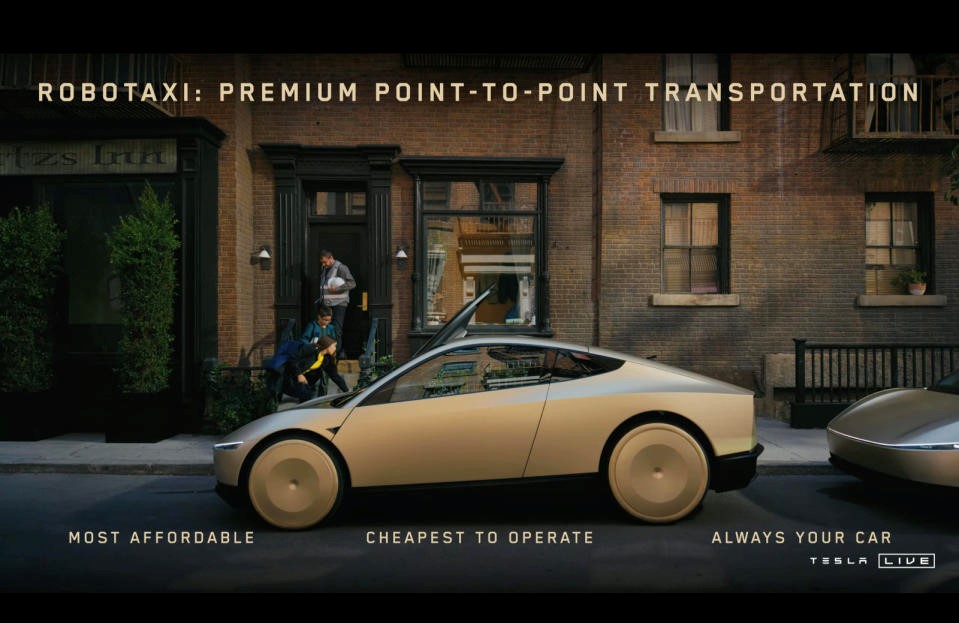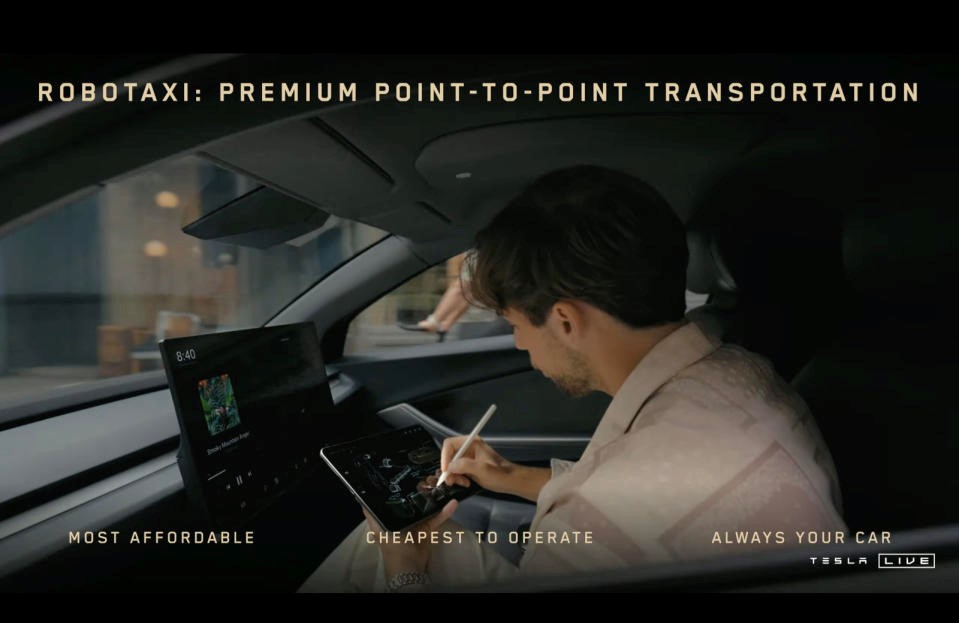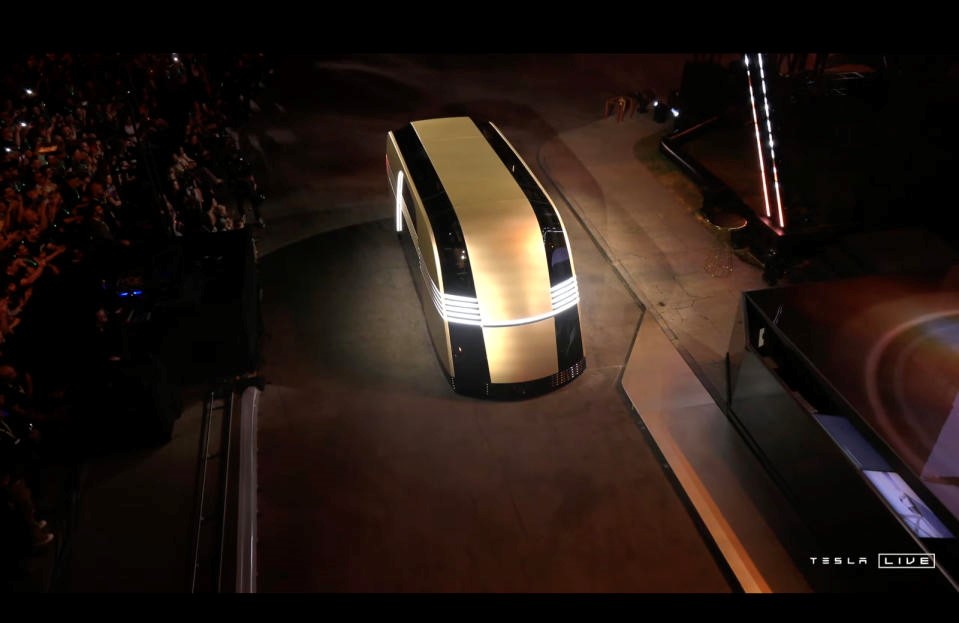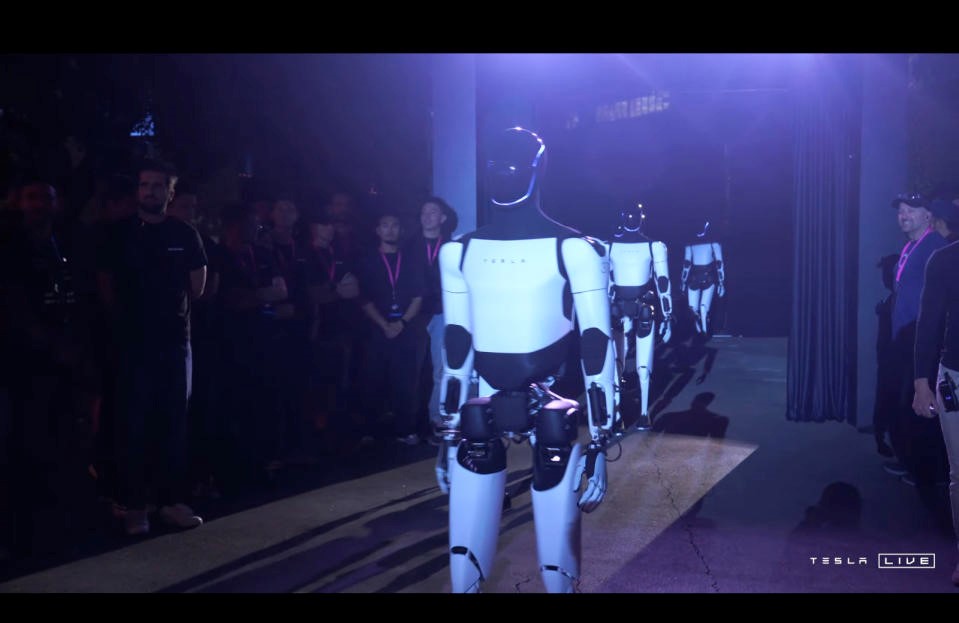Tesla unveils its ‘Cybercab’ robotaxi
Tesla unveils its ‘Cybercab’ robotaxi
The automaker has launched its robotaxi at its ‘We, Robot’ event.

Tesla has introduced a robotaxi called Cybercab during its “We, Robot” event at Warner Bros. Discovery’s studio in California, six months after Elon Musk revealed that the company was going to launch one. Musk made his way to the stage on a Cybercab, which has no steering wheels or pedals, announcing that “there’s 20 more” where it came from. He talked about how our current modes of transportation “suck” and how how cars are on standby all the time. A car that’s autonomous could be used more, he said. “With autonomy, you get your time back… Autonomous cars are going to become 10 times safer.”
Musk said the costs of autonomous transport will be so low that they will be comparable to mass transit. In time, he said the operating cost of the robotaxi to be 20 cents a mile, 30 to 40 cents with taxes. He confirmed to the audience that people will be able to buy one and that Tesla expects to sell the Cybercab for below $30,000.
The Tesla CEO envisions a future wherein people own several robotaxis, managing a fleet like a “shepherd,” that can earn them money through a ridesharing network. When asked when the model will be available, he replied that Tesla will start by making fully autonomous unsupervised Full Sell Driving available on the Model 3 and Model Y in Texas and California. Musk said that the Cybercab is expected to go into production before 2027, but he himself admitted that he tends to be “highly optimistic with timeframes.” And he does — he said way back in 2019 that Tesla will “have over a million robotaxis on the road” within a year.

Talking about the Cybercab’s technology, he said that it uses AI and vision. Tesla has long dropped radars and sensors that other robotaxis like Waymo’s use extensively. Because of that, he said that it doesn’t need expensive equipment, and Tesla can keep manufacturing costs low. Notably, the Cybercab doesn’t come with a charging port and uses inductive charging instead.
Reuters reported back in April that Musk ordered the company to “go all in” on robotaxis built on its small-vehicle platform. Musk previously said that the model was going to be unveiled on August 8, but he later announced that the company’s robotaxi event will be pushed back to October after he requested “an important design change to the front.” The delay would also give the company extra time to “show off a few other things,” he explained. The Cybercab that Tesla presented to the audience today is all silver and seems to have taken design cues from the Cybertruck. It doesn’t have a back windshield and has doors that open upwards.

In addition to reporting the robotaxi’s existence, Reuters revealed in April that Tesla scrapped its plans for an affordable, $25,000 electric vehicle. While Musk called it a lie, another report by Electrek backed Reuters‘ story and cited “sources familiar with the matter” who reportedly told the publication that the low-cost EV’s development has been postponed.
After talking about the Cybercab, Musk briefly introduced the Robovan — an autonomous van that can carry up to 20 people and transport goods. It’ll get the costs of travel down even further, he said, since it could transport big groups like sports teams. Finally, Musk brought out a parade of Tesla’s humanoid Optimus robots. Musk said Tesla has made dramatic progress on its development over the past year and that in the future, it could teach your kids, mow your lawn and even be your friend. He believes Tesla could sell its Optimus robots, which mingled with the audience and served drinks during the event, for between $20,000 to $30,000.

(2)


